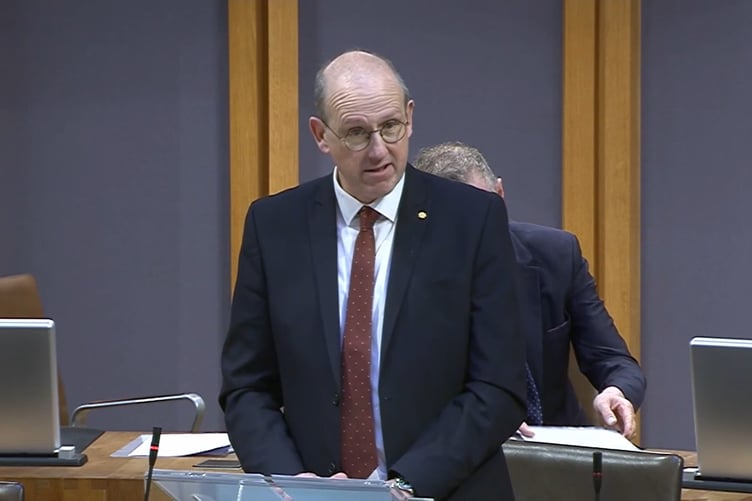MSs have warned Welsh Water must take urgent steps to improve, with growing calls for a regulatory and governance overhaul amid concerns about a lack of accountability.
Llŷr Gruffydd, who chairs the Senedd’s climate change committee, led a debate on a report following an inquiry on the performance of Welsh Water.
Mr Gruffydd told the chamber Welsh Water has dropped to a two-star environmental rating, with its overall performance categorised as “lagging” for the second year running.
Warning of growing public anger over sewage spills, he said: “Pollution, leakages, quality and supply interruptions are just some of the issues Welsh Water is struggling with.”
Mr Gruffydd, warned: “There’s a continuing public perception that Welsh Water can illegally spill sewage and get away with it scot-free.”
He emphasised that the only acceptable number of pollution incidents is zero.
Lee Waters suggested goodwill towards Welsh Water – which is owned by Glas Cymru, a non-profit company – has constrained scrutiny and challenge.
He told MSs the not-for-profit model should not excuse poor performance nor inefficiency.
He said: “Without the pressure and scrutiny of shareholders, there is a particular need to ensure that there is robust questioning of the company's performance.”
Warning of an accountability deficit, Mr Waters said Ofwat applies a one-size-fits-all approach to regulation which has not served Wales well.
Adam Price agreed about the accountability gap as he questioned whether the Glas Cymru model works.
He said: “Now is the time for us to have a broad-ranging debate in Wales as to whether the model we have within the water sector is working for us
“And if it isn't, then we should discuss what alternative model we would wish to adopt.”
Janet Finch-Saunders, the Conservatives’ shadow climate change secretary, acknowledged Welsh Water is making improvements, with a £3.5bn investment programme over five years.
But she criticised the company’s “not strong enough” commitment to a 24 per cent reduction in pollution by 2030 to 69 incidents or less, saying one pollution incident is too many.
Responding to the debate, Huw Irranca-Davies, the newly appointed climate change secretary, said the latest performance reports paint a mixed picture.
But Mr Irranca Davies, a member of the committee during the inquiry, warned Welsh Water has a long way to go to meet the challenges of the climate and nature emergencies.
He said: “Improving the performance and delivering for the people of Wales is a top priority.”

_cropped.jpeg?width=209&height=140&crop=209:145,smart&quality=75)



Comments
This article has no comments yet. Be the first to leave a comment.